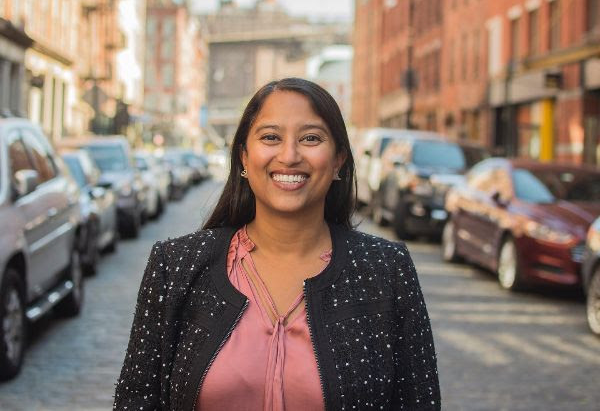News
Osborne Association Names New President and CEO
Archana Jayaram will succeed Elizabeth Gaynes as leader of the 89-year-old criminal justice nonprofit

New York, NY— The Osborne Association Board of Directors has named Archana Jayaram, chief operating officer of the Legal Aid Society, as Osborne’s next president and CEO. Jayaram was elected by a unanimous vote of Osborne’s board following an extensive national search.
“Archana has dedicated her career to public service, and we are very fortunate to have her as Osborne’s new CEO,” said Jamie Rubin, Osborne board chair. “She has helped run some of the most challenging and important government and non-profit organizations in New York City. Archana’s energy, and her deep commitment to improving the lives of New Yorkers affected by incarceration, will drive Osborne’s continued expansion of services, including opening a transitional housing facility at the former Fulton correctional facility.”
Jayaram has worked in leadership positions at the New York City Department of Correction (DOC) and Department of Buildings and with SCO Family of Services, a $250 million multiservice nonprofit. While at DOC, she led the agency’s development of evidence-based interventions that equipped incarcerated people with the skills to successfully transition from jail to their communities. Jayaram received her BA from the University of Pennsylvania and her MBA from the Columbia Business School.
Jayaram will become CEO in April, succeeding Elizabeth Gaynes, who will remain a consultant to Osborne through the end of the year. Gaynes became Osborne’s leader in 1984, and under her guidance, Osborne has grown from a two-person Manhattan office into one of the largest and most effective criminal justice service and reform organizations in the country. Osborne’s 350 staff members offer family-focused services in community sites across New York City, the Hudson Valley, Buffalo, and 35 New York State prisons and New York City jails.
“Under Liz’s leadership, Osborne has been a pillar of criminal justice programming and innovation. I have long respected Osborne’s participant-centered approach to programs and have seen first-hand the powerful impact and transformative effect of their family and community focus,” said Jayaram. “I’m incredibly honored to have the opportunity to build on the great successes of this storied institution.”
“I have known and admired Archana for more than a decade, and am thrilled she will bring her deep experience in criminal justice, government, and nonprofit leadership to Osborne as our next CEO,” said Osborne Association President and CEO Liz Gaynes. “It has been a privilege to guide Osborne for nearly four decades. Our incredible staff has built and led programs that make a remarkable difference in the lives of the people we serve. We are excited to welcome Archana and ensure a seamless transition as Osborne continues its essential work.”
Zachary W. Carter, board chair of The Legal Aid Society, said: “At Legal Aid, Archana strengthened the administrative operations, largely invisible to the public, that supported the delivery of high quality legal services and social policy advocacy for underserved New Yorkers. We could not be more pleased that Archana will be bringing her natural leadership abilities to the Osborne Association.”
“I have known Liz Gaynes since I began my career at Osborne over 30 years ago,” said Ana L. Oliveira, President and CEO of the New York Women’s Foundation. “Liz has built Osborne into a powerhouse which we have been proud to fund. Archana is a proven leader and will be a strong match for Osborne’s commitment to dismantling mass incarceration and for Osborne’s culture and its devotion to race and gender equity.”
Nicholas Turner, president of the Vera Institute of Justice, added: “Osborne is an effective, trusted, and vital player in bringing services and policy solutions to those affected by New York’s criminal justice system. The Vera team looks forward to working with Archana and her Osborne colleagues in building more restorative and effective modes of justice in New York City and State.”